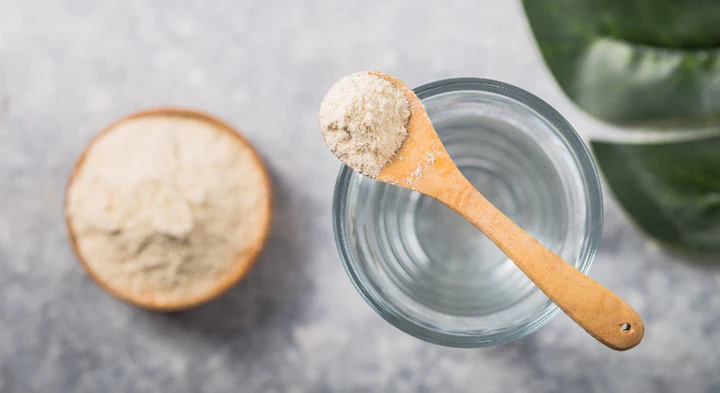Collagen peptides, a form of collagen, have garnered significant attention in the health and beauty sectors due to their myriad benefits. These small, easily digestible proteins are created by breaking down full-length collagen molecules. Collagen itself is a crucial component of the human body, providing structural support to skin, hair, nails, bones, and joints. As we age, our natural collagen production decreases, leading to the common signs of aging such as wrinkles and joint discomfort.
This is where collagen peptides come into play, offering a promising solution to not only improving skin health but also enhancing overall wellness. Supplementing with collagen peptides has been shown to support healthy skin, stronger nails, and hair, as well as joint and bone health. In the subsequent sections, we’ll delve into the benefits of collagen peptides, their sources, and how they can be incorporated into your diet for maximum health benefits.
Benefits of Collagen Peptides:
Collagen peptides, often termed as hydrolyzed collagen, are small, easily digestible forms of collagen, a vital protein found abundantly in the human body. Known for their impressive range of health benefits, collagen peptides have garnered significant attention in both the scientific community and the wellness industry. Below, we explore two of the primary benefits these potent molecules offer: enhanced skin health and improved joint function.
Skin Health
Collagen is a cornerstone of skin health, contributing to its elasticity, hydration, and overall youthful appearance. As we age, our body’s natural collagen production declines, leading to common signs of aging such as wrinkles, sagging skin, and dryness. Supplementing collagen peptides has been shown to counteract these effects, promoting a more vibrant and youthful complexion.
Studies have found that regular intake of collagen peptides can significantly increase skin elasticity and hydration levels. Moreover, collagen’s ability to stimulate the body’s production of hyaluronic acid—a molecule that helps retain skin moisture—further amplifies its skin-rejuvenating effects.
- Enhances skin hydration
- Improves elasticity
- Reduces the appearance of wrinkles
- Stimulates the production of natural hydrating agents like hyaluronic acid
Joint Health
Beyond skin rejuvenation, collagen peptides play a crucial role in supporting joint health. Joints are complex structures that rely on a network of connective tissues, including cartilage, which is rich in collagen. With age or due to repetitive stress, the integrity of cartilage can diminish, leading to discomfort and reduced mobility. Collagen peptides offer a building block for regenerating cartilage and maintaining joint lubrication, thus contributing to smoother, pain-free movement.
Clinical research corroborates these benefits, showing that individuals suffering from joint-related conditions experience significant improvements in symptoms after incorporating collagen peptides into their diet. This includes reduced pain, increased flexibility, and better overall joint function.
- Promotes cartilage regeneration
- Enhances joint lubrication
- Alleviates pain associated with joint conditions
- Improves mobility and flexibility
Sources of Collagen Peptides:

To harness the myriad benefits of collagen peptides, it’s essential to understand their sources. Fortunately, collagen peptides can be obtained through a variety of means, making them accessible to most people, regardless of dietary preferences or restrictions. Here, we delineate the primary sources of collagen peptides, namely natural food sources and supplements.
Natural Food Sources:
Collagen peptides are naturally present in the connective tissues of animals, making certain foods particularly rich in this valuable protein. Consuming these foods as part of a balanced diet can help bolster your body’s collagen levels, albeit indirectly since the body needs to break down dietary collagen into peptides or amino acids before they can be utilized. Key food sources include:
- Bone Broth: Simmering bones, ligaments, and tendons release collagen into the broth, making it a rich source of collagen peptides.
- Fish and Shellfish: The skin of fish and shellfish is abundant in collagen. Since this is where most of the collagen is concentrated, eating the skin can be beneficial.
- Egg Whites: While egg whites do not contain connective tissues, they are rich in proline and glycine, amino acids that are vital for collagen production in the body.
- Dairy and Lean Meat: These foods are good sources of the amino acids required to produce collagen in the body.
It’s important to note that the absorption and efficacy of collagen from natural food sources can vary based on the individual’s digestive health and the specific types of foods consumed.
Collagen Supplements:
For individuals looking for a more direct and convenient source of collagen peptides, supplements present an appealing option. Collagen supplements typically come in the form of powders, capsules, or liquid extracts, all designed to provide a concentrated dose of easily digestible collagen peptides. The advantages of opting for supplements include:
- High Bioavailability: Collagen peptides in supplements are hydrolyzed, meaning they have been broken down into smaller units that are easier for the body to absorb.
- Convenience: Supplements offer a straightforward way to increase your collagen intake without the need to consume large quantities of collagen-rich foods.
- Versatility: Collagen powder, for example, can be mixed into a variety of foods and beverages, making it an adaptable supplement for everyday use.
- Purity and Concentration: Many supplements are formulated to offer pure collagen peptides without additional ingredients, ensuring you get a potent dose each time.
When selecting collagen supplements, it’s crucial to research the product’s quality, source, and manufacturing process. Opting for supplements that are third-party tested and sourced from grass-fed, free-range, or wild-caught animals can further enhance the benefits received.
In conclusion, collagen peptides are a powerhouse ingredient for improving skin health, enhancing joint function, and supporting overall wellness. Whether through natural food sources or supplements, incorporating collagen peptides into your diet can be a valuable strategy for maintaining a vibrant, healthy body at any age. Understanding the best sources and methods for obtaining these peptides will help you make informed choices that align with your health goals and lifestyle preferences.
How to Use Collagen Peptides?
Dosage Recommendations
When introducing collagen peptides into your regimen, it’s vital to adhere to the recommended dosages to achieve optimal benefits. Generally, a daily intake of 10-20 grams of collagen peptides is advised for adults. However, this amount may vary depending on individual health goals and conditions. It’s always prudent to consult with a healthcare provider before starting any new supplement, especially if you have underlying health issues or are pregnant or breastfeeding.
Incorporating Collagen into Your Daily Routine:
Incorporating collagen peptides into your everyday routine can be simple. Collagen peptides are highly versatile and can be added to both hot and cold beverages without affecting their taste or texture. Here are some practical ways to integrate them into your daily diet:
- Mix into your morning coffee, tea, or smoothie.
- Stir into oatmeal, soups, or sauces.
- Blend into your pre or post-workout shakes.
- Combine with water or juice for a quick and easy supplement.
Consistency is key when it comes to experiencing the full benefits of collagen peptides, so finding a method that fits seamlessly into your lifestyle is crucial.
Recipes and Tips for Consumption:
To help you kickstart your collagen journey, here are some creative ideas and tips for incorporating collagen peptides into your meals and drinks:
- Morning Boost: Add a scoop of collagen peptides to your morning coffee or smoothie. It’s a perfect way to start your day with a protein boost that’s also great for your skin and joints.
- Protein-Packed Snacks: Mix collagen into homemade energy balls or bars. Combine with oats, nuts, and honey for a nourishing snack.
- Nutritious Soups: Stir collagen into broth-based soups. It dissolves easily and enriches your meal with amino acids essential for the body’s repair mechanisms.
- Hydration with a Twist: Enhance your water with collagen and a splash of lemon or cucumber for refreshing and beneficial hydration.
Remember, the key to enjoying the benefits of collagen peptides is regular and consistent use. Experiment with different recipes and find what works best for you to make it a staple in your health and wellness routine.

